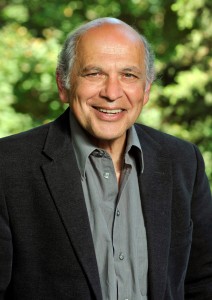By Stuart Mann
Alex Himelfarb, the keynote speaker at the upcoming Outreach and Advocacy Conference, says tax cuts have eroded Canada’s ability to pay for health care, social programs and infrastructure and have created a meaner society.

Mr. Himelfarb was the Clerk of the Privy Council and Secretary of the Cabinet for three prime ministers. He is the chair of WWF-Canada and The Coalition to End Homelessness, as well as a member of several other non-profit boards. He is the co-editor of the book, Tax is Not a Four Letter Word.
“What concerns me most is that our collective-action problems – those problems we can only solve together such as climate change and inequality – are probably more challenging than they have ever been, but our collective tool kit has probably never been weaker,” he says.
He says years of tax cuts from all levels of government and every political stripe have taken too much money out of the public coffers, undermining the country’s ability to maintain services and make investments for future generations.
For example, reductions in the GST have taken $14 billion annually out of the national treasury since the cuts were made in 2006 and 2007. Estimates have put the total amount of all tax cuts made at the federal level over the past decade at about $300 billion.
Mr. Himelfarb says Canadians have accepted the cuts without asking what they have to give up in return. “If we decide we don’t want to pay taxes, then we better be clear about what we’re giving up. We better stop pretending tax cuts are free.”
He says tax cuts have resulted in higher personal expenses on everything from home insurance to health care. For example, Canadians now pay more out-of-pocket health care costs than at any time since the universal health care system was created.
Tax cuts have also hobbled government’s ability to pay for new and existing infrastructure. “We haven’t invested in infrastructure and we’re paying the price now,” he says. “We’re standing on the shoulders of previous generations who were more than willing to pay taxes. They made the investments from which we benefit today. What are we paying forward?”
Shrinking treasuries are leading to policies of austerity, he says, the consequences of which are falling hardest on the most vulnerable. “So we justify cutting out essential health services for refugee claims; we shortchange rehab programs for prisoners; we don’t let migrant workers pull out benefits, even though they pay into our system; we don’t come near to reducing child poverty, even though we’ve made a commitment to end it; fewer unemployed Canadians have access to employment insurance than ever before since the development of the system.”
He says Canadians need to “change the conversation” on taxes and the meaning of poverty. “We’ve got to challenge the poor-people-blaming that has somehow infected our culture. We’ve got to call some of that out. We’ve got to change the poetry.”
He says that can happen with a top-down and bottom-up approach. At the top, political, religious and community leaders can challenge the status quo. He lauded the Pope’s recent statements on climate change and the economy and also President Barak Obama and Warren Buffet’s comments on tax reform.
Working from the bottom up, local community groups can also change the conversation about taxes. “What we’ve discovered is that when people engage in making their community stronger, two things happen: they build solidarity and come to a stronger sense of their power collectively; and they also understand the limits of what they can do in the community and they start pushing and demanding more. I think both of those things are worth exploring.”
He says Anglicans and other faith groups understand the issues and are already playing a role in bringing about change. “I have spoken to groups of Anglicans and find that the kind of big picture policy discourse with a strong moral centre is happening in faith groups, often when it’s not happening elsewhere.”
The Outreach & Advocacy Conference will be held on Oct. 17 at Holy Trinity School in Richmond Hill. In addition to Mr. Himelfarb’s keynote speech, conference attendees will be able to attend interactive workshops on a number of key social justice issues such as reconciliation with First Nations, environmental responsibility, and a missional approach to social justice. The day will close with a time of worship and fellowship.
Cost for the conference is $25 per person ($10 for students and the unemployed) and includes lunch and childcare. To register online, visit the conference web page. For more information, contact Ryan Weston, the diocese’s Social Justice and Advocacy consultant, at rweston@toronto.anglican.ca or 416-363-6021 or 1-800-668-8932, ext. 240.